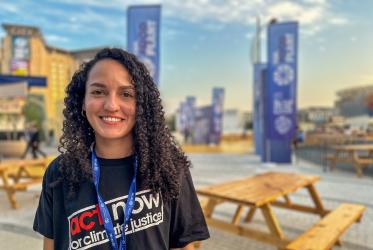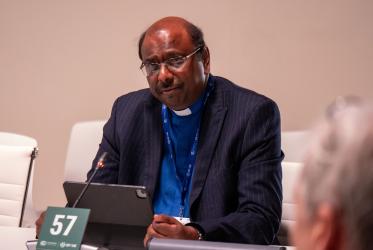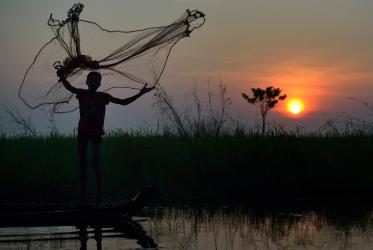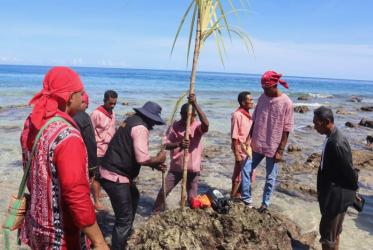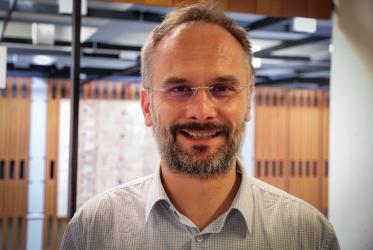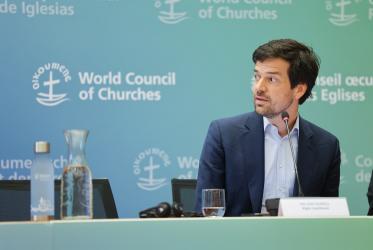Displaying 1 - 20 of 64
¿Qué pueden hacer las iglesias para prevenir la esclavitud moderna?
26 February 2024
What can churches do to prevent modern slavery?
22 February 2024
Ellyanne Chlystun-Githae Wanjiku to COP28: “listen more to children”
13 December 2023
At COP28, WCC general secretary hopes for “less talk and more walk”
01 December 2023




